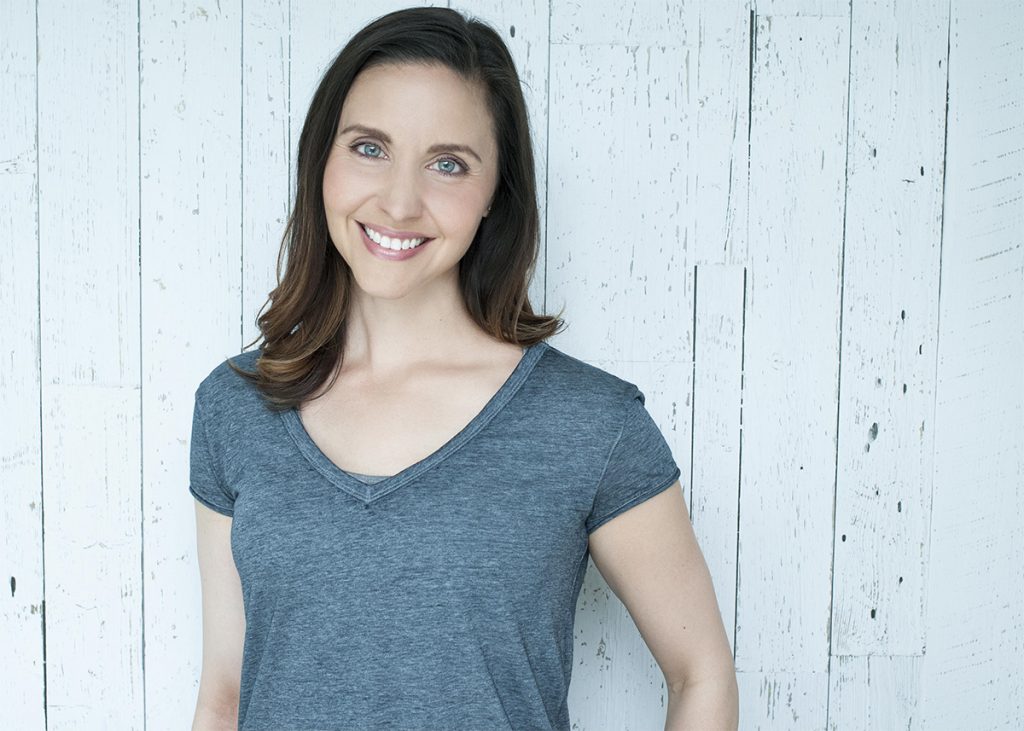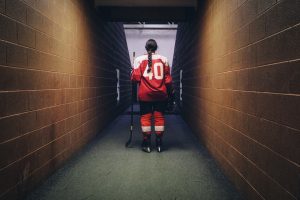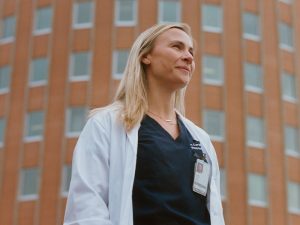What a Breast Cancer Survivor Wants You to Know About Cancer Fundraising

Did you know that breast cancer is the most commonly diagnosed cancer among Canadian women?
But how much do any of us really know about it? To find out more about what it’s like to undergo treatment, we chatted with Sylvie Normandeau, who was diagnosed at age 31 with stage 3b triple positive breast cancer (ER, PR and HER2+), to get her thoughts on fighting cancer, fundraising, and what really helps someone fighting cancer.
SavvyMom: I know that you found out through genetic testing that you carry the BRCA2 mutation—despite having no history of breast cancer in your family. When we read about your medical history that “no history” part really jumped out. Could you tell us a bit about when and why you underwent the genetic testing?
Sylvie Normandeau: It was something my doctor suggested after my initial diagnosis, due to my age. I was 31 at diagnosis and the doctor’s kind of said, why don’t you just get it done? You’re young, and we don’t know why you got cancer so young…so let’s just get it done. So I wasn’t concerned. I got the results a few months later and I was feeling very brave that day, so I went in to get the results myself. I’d had so many appointments and I just didn’t want to bother my support network again for another appointment so I thought, I can handle this one, not a big deal. And then I got the news and I was so shocked.
SM: As part of your treatment, you had a double mastectomy. I was wondering if you had any advice for someone who’s either going through it, knows they will have to go through it, or knows someone who is about to go through a mastectomy?
SN: With the surgery itself, there’s a recovery period, and it’s important to honour that. Do not push yourself too hard too soon. It’s not worth it. It’s essential that you get as much help as you can. Things like lifting your children, lifting grocery bags, putting groceries away in top shelves—you will need help with things that you may take for granted right now. And during the recovery period it’s really important that you honour your body by getting that help.
SM: What else did you need during the recovery process? How can a friend or family member help someone in recovery or undergoing treatment?
SN: There was one side of me that felt overwhelmed from hearing from so many people and having to repeat my story and coming up with the energy to respond and say what I needed to say. One of the things I needed the most, which I didn’t ask for, was time by myself. Time to sleep. Time to recover. I was a young mum. I had a five-year-old. Any time that I got to myself, even 20 minutes, I really appreciated. Help with my kid and peace and quiet. You know, say, “We’re gonna take your daughter for a couple hours, take her out for ice cream so you can rest.” I would have taken that, no problem.
SM: The part about someone volunteering to take your kid on a specific outing, I’ve heard that before—that specificity is best. Instead of saying “I’m happy to help, anything you need.” Say, “I’d love to take your child out for ice cream or to the park for an hour so you can rest.”
SN: Every woman has different needs, especially when we’re talking about mums, but yes, specificity is key. I know some women who actually created a blog or online list or calendar of things that needed to be done, or things that would be nice to have done. So it removed the burden from the person going through treatment to have to decide what needed to be done when.
SM: I love that. I can see that working well for people who might have a large network of people eager to help. If people want to help cancer patients in a broader way, whether by fundraising, or getting involved in an event, what can they do? What’s effective?
SN: I think it’s important to remember that there are real, individual people going through cancer treatments. It’s all about real people. And money for research is needed, no doubt. Of all the medication I received, I know that most of it didn’t exist even a few years ago. So I am very grateful that the funding was there for [my medication] to be possible.
SM: What does an event like CIBC Run for the Cure, and other similar fundraising events, mean for you, and for your family?
SN: I love the energy about it! I think that, number one, it just brings people together. And I’ve seen a lot of great momentum—raising awareness, building community. I’ve had friends who have run on my behalf, and that was really lovely. The energy of it, knowing people are thinking of you, and doing things to help others as well…it just feels good. All that good energy has a ripple effect.
SM: You mentioned that you have kids. Do you have any tips for people talking to kids about cancer fundraising? What do you say when a kid says, “Why are we doing this, why am I here?”
SN: That’s a hard one. I did have to deal with a lot of questions along the way from my (at the time) 5-year-old. I had to keep the answers age-appropriate. That’s probably the key—don’t give too much information. When a kid has a question, it’s coming from a very genuine, honest and pure place, and they don’t really need to know more than surface level. So, just say, “We’re doing something for people who need help, for people who are sick.” I think you can just keep it simple, you know? And it instils that altruistic seed, to help people who are in need, more than you are. I think children have a natural ability and desire to want to help others. So if you just say that much, I think it’s enough.
How you can help
CIBC Run for the Cure is Canada’s largest single day, volunteer-led event in support of creating a future without breast cancer. The run brings together a community of people who have a personal connection to breast cancer and want to show their support. Today, the event has nearly 100,000 participants and raises over $17 million annually in communities across Canada.
Anyone can run. Or walk. This is an accessible, family-oriented event and people of all ages and abilities are welcome to participate in any way they can.
You can also support the event by donating to someone running. To do so, or to find the run nearest you, go to cibcrunforthecure.com
This post is brought to you by the Canadian Cancer Society CIBC Run for the Cure, but the images and opinions are our own.















